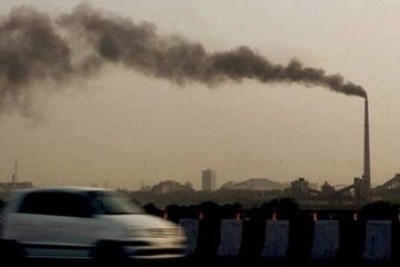
New Delhi, Proposals to establish a definitive and consistent global benchmark for high-integrity carbon credits, published for consultation on Wednesday, aim to build trust and unlock urgently-needed additional finance to reduce and remove billions of tonnes of carbon emissions that would not otherwise happen.
The Integrity Council for the Voluntary Carbon Market is launching a public consultation on its draft Core Carbon Principles (CCPs), which propose fundamental, interlinked criteria for high-quality carbon credits that create real, verifiable climate impact, based on solid science and best practice, with social and environmental safeguards.
The draft CCPs, and accompanying draft Assessment Framework, are designed to build a widely-shared understanding of what high integrity means for carbon-crediting programs and credit types in a framework that is workable and establishes a clear pathway for continual improvement.
This would provide a readily-accessible way to identify high-quality credits, reduce confusion, overcome market fragmentation and support transparent pricing, giving buyers confidence they are funding projects that make a genuine impact.
High integrity carbon credits are an important complementary tool to channel private capital efficiently towards the most impactful, cost-effective climate mitigation activities worldwide.
They can provide accessible finance for climate mitigation activities that are critical to achieve the emissions reductions and removals necessary to help stabilise the global temperature at 1.5 degrees Celsius, such as nature-based solutions and emerging breakthrough technologies that are difficult to commercialise today.
Integrity Council Chair Annette Nazareth, a former Commissioner of the US Securities and Exchange Commission, said: "The voluntary carbon market exists to accelerate a just transition to 1.5 degrees. That's why, in designing an effective market that can deliver genuine climate impact at speed and scale, we need to start with integrity.
"It is a precondition for a transparent, deep, liquid, standardised and scalable market that efficiently channels capital to where it is most urgently needed. To make this work, we need everyone from across the voluntary carbon market to come to the table, share knowledge and expertise, and collaborate to co-create the CCPs and Assessment Framework."
An efficient voluntary carbon market could also help deliver critical funding to developing countries and to indigenous peoples and local communities (IPLCs), who play a key role in the stewardship of forests, biodiversity and other local and global ecosystem services.
IPLCs manage around 40 per cent of the planet's remaining ecologically intact landscapes. Their continued ability to protect and enhance those landscapes is inextricably linked with our ability to achieve our collective climate and sustainable development goals.
Hindou Oumarou Ibrahim, President of the Association for Indigenous Women and Peoples of Chad, and a member of the Integrity Council's Distinguished Advisory Board, said: "Indigenous peoples protect a third of the carbon-dense ecosystems on the planet. Investments in natural solutions are essential to address climate change and to increase finance for indigenous-led solutions.
"The voluntary carbon market has the potential to do this if it adopts a rights-based approach to fully respect, protect and realise the rights of indigenous peoples and local communities, and channel finance towards the recovery of the Global South."
By establishing a global benchmark for high-integrity carbon credits, the CCPs can pave the way for the development of spot and futures markets in carbon credits.
These would be highly liquid, easily scalable, and help create a transparent price signal, enabling better price risk management.
The Integrity Council is an independent governance body for the voluntary carbon market. It was set up in September 2021 in response to the final recommendations of the Taskforce on Scaling the Voluntary Carbon Markets (TSVCM), an initiative backed by more than 250 organisations.


.jpeg)

